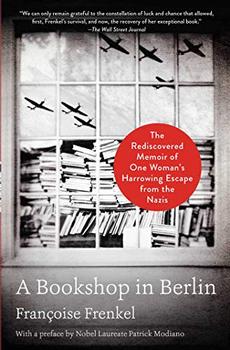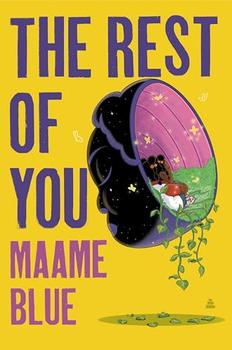Summary | Excerpt | Reviews | Beyond the Book | Readalikes | Genres & Themes | Author Bio

The Rediscovered Memoir of One Woman's Harrowing Escape from the Nazis
by Francoise Frenkel
My elderly former professor, who had remained a devoted friend, suggested I follow him to Avignon, where he was heading himself. I remember the two of us sitting there on the terrace of our regular café, La Boule d'Or, on Place Saint-Michel. He was describing to me the delights of the historic town. The Pont d'Avignon, which until then I had known only as the bridge in the song, a memory from the distant past, was to become a reality ...
The radio was recommending procuring a safe-conduct pass for the journey, so I took myself off to the police station in my neighborhood very early one morning. I was not in the least astonished to find a line of applicants. After the hours I had spent waiting outside the prefecture of police, I was not about to be put off by anything of that nature.
A group of us were led over to a table where some policemen were sitting. We discovered it would be necessary to get hold of either a medical certificate attesting to the need for a stay at the seaside or in the countryside, or a personal invitation from the place where one was planning to go, preferably from a close relative or, even better, from a patient requiring care.
Some went straight from the police station to besiege doctors' consulting rooms, others discovered relatives of varying degrees of proximity; everybody was just trying to extricate themselves as best they could, and people began to acquire a fresh spirit of innovation to cope with the changing circumstances.
My old friend urgently contacted his godson, who promptly sent me a formal invitation as required.
The appeals to evacuate Paris were growing urgent, but at the same time, safe-conduct passes were increasingly difficult to obtain. I received mine not a moment too soon.
On the eve of my departure from Paris, I received news of my bookshop from the Swedish Ambassador: the boxes of books and records, as well as the furniture and fittings, had been put into storage, thanks to the Swedish Embassy.
Three months later, I was informed by a contact in Switzerland that it had all just been confiscated by order of the German government on the grounds of my race.
Having learned from experience, and in order to guard against all eventualities, I had the notion of asking publishers for a letter of recommendation before I headed off into the unknown. I was directed to the appropriate office of the President of the Council of Ministers where I obtained a document drafted in the following terms:
Madame F*** has for many years been the committed and intelligent manager of a bookshop devoted exclusively to French literature, a bookshop which she established in Berlin in 1921. She has rendered significant service to France through the distribution of French literature abroad. May she avail herself of every freedom and benefit our nation has to offer, the nation for which she has so tirelessly toiled.
The document was signed by a high-ranking official from the office of the President of the Council.
My luggage, two suitcases in total, was swiftly packed; my great trunk, salvaged from Berlin, was put into storage in Paris.
My old friend generously took up position at the Gare de Lyon and, after several hours of waiting, obtained two tickets for Avignon.
Finding a car at that time was a challenge; I stationed myself on the side of the footpath in plenty of time, my two suitcases in front of me, in the hope of snaring a taxi. A good hour later, a driver stopped.
*
It was a glorious spring day.
I crossed the city from west to east; the whole Right Bank unfolded before me in a melancholy display, its magnificent perspectives seeming to disappear into infinity.
Paris appeared more beautiful than ever in her imposing grandeur, and as the city passed by I said a painful farewell.
From A Bookshop in Berlin: The Rediscovered Memoir of One Woman's Harrowing Escape from the Nazis by Françoise Frenkel. Reprinted by permission of Atria, a Division of Simon & Schuster, Inc. Copyright © 2019 by Françoise Frenkel.




The silence between the notes is as important as the notes themselves.
Click Here to find out who said this, as well as discovering other famous literary quotes!
Your guide toexceptional books
BookBrowse seeks out and recommends the best in contemporary fiction and nonfiction—books that not only engage and entertain but also deepen our understanding of ourselves and the world around us.